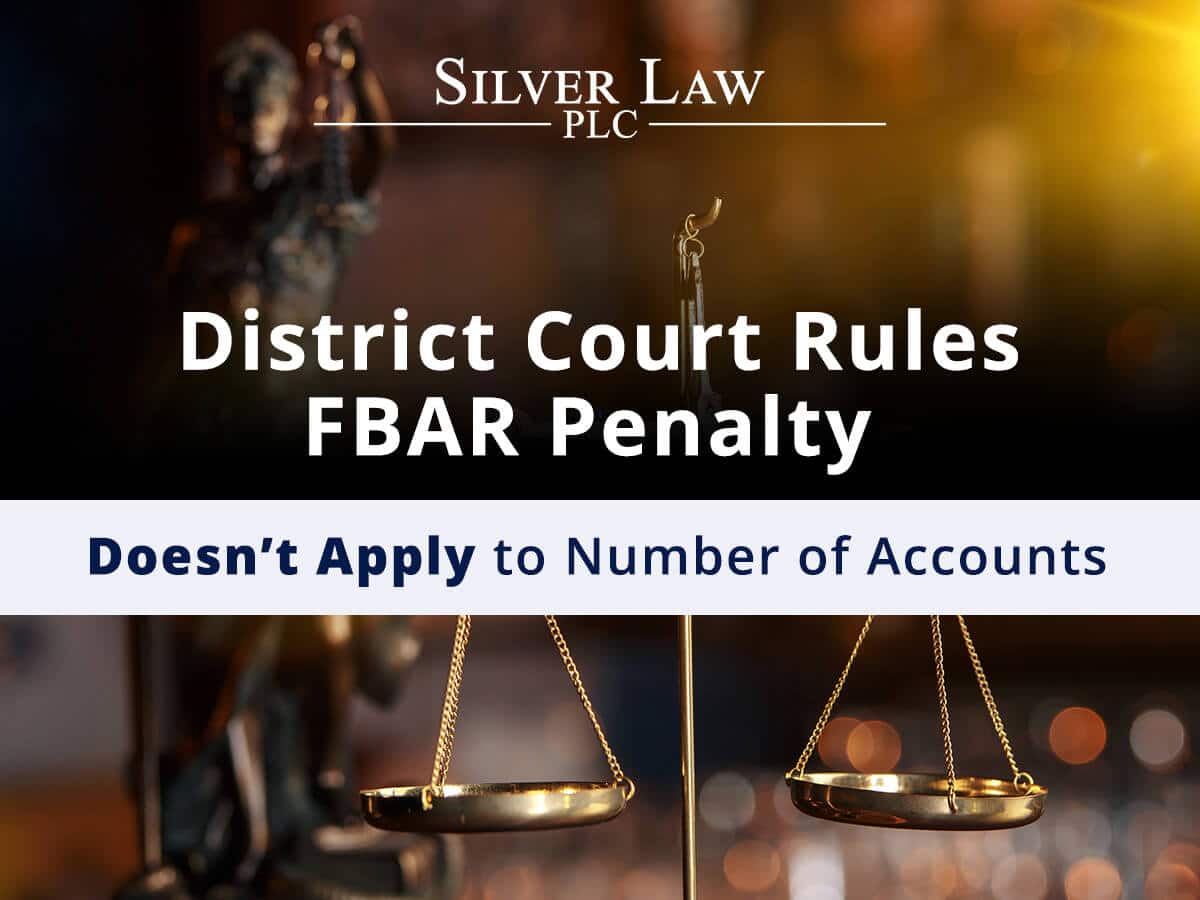Tax cases can make it to higher courts on appeal, and when they do, the decisions that the courts reach can clarify tax law or even change it. In the case of U.S. v. Bittner, a district court made a ruling clarifying the penalty for those who fail to file the right forms disclosing foreign financial accounts. The court ruled that the non-willful penalty for an FBAR violation only applies to each FBAR form not submitted properly or by the appropriate deadline – not to each foreign account that is not reported. Our Phoenix tax attorneys can help explain the details of this case:

U.S. tax law requires that every person who has a financial interest (including a signature or other authority) in a financial account in another country discloses it to the IRS with a FinCEN report, or the Report of Foreign Bank and Financial Accounts (commonly known as an FBAR). The form must be filed if the value of the account is more than $10,000 at any time during the calendar year.
The law only requires one FBAR to be filed, even if multiple accounts must be reported. All of the accounts can be reported on the same form.
Failing to file an FBAR can lead to huge penalties. The maximum penalty for a non-willful violation – such as not realizing that the form was required – is $10,000. The maximum penalty for a willful violation – or for willfully causing a violation by another – is $100,000 or 50 percent of the amount of the accounts. The greater amount is the penalty.
Any penalties assessed after Aug. 1, 2016 – for violations that occurred after Nov. 2, 2015 – the penalties are adjusted for inflation.
In the district court case, the court ruled that penalties for non-willful violations of the FBAR should only be assessed for each form not submitted, not to each account in question. Previously, a court had ruled that the penalty should be assessed for each account not reported. For the taxpayer in question, that would have amounted to $10,000 for each of 51 accounts not reported. That would have been a fine of $510,000.
The taxpayer appealed, and the district court ruled in his favor, saying that he should pay only a $10,000 fine for one non-willful violation of failing to file the one form. In explaining its decision, the court said that the statute outlining the requirements and the penalties for the FBAR do not mention an “account” and only discuss the requirements for filing a return. Therefore, the court ruled, the penalty should only apply to the violation of the return, not the accounts included on the return.
The rules regarding reporting of foreign accounts to the IRS can be complicated, and it can be easy to overlook or to unintentionally violate some of your requirements if you attempt to file your taxes on your own. At a minimum, you should be consulting with a certified public accountant experienced in the reporting of foreign accounts. However, you should also consider consulting with a Gilbert tax attorney since the penalties for any violations can be severe. Whether it’s reporting what you are keeping in a foreign account, reporting investments or real estate you have overseas, or reporting gains from foreign stocks or other investments, a good tax attorney can help you understand all your obligations for reporting (and paying any relevant taxes) so that you don’t find yourself in legal hot water.
If you have foreign financial holdings, call us at Silver Law PLC to learn more about your tax obligations. Our attorneys can advise you so that you can avoid penalty. If you have already been assessed penalties or are facing legal action because the IRS has accused you of a violation, our Phoenix tax attorneys can defend you. We represent taxpayers in audits, as well as in civil and criminal litigation or appeals. We will do everything we can to help you avoid penalty or to minimize the consequences you face. We may be able to negotiate a settlement for you, or we may find other missed opportunities in your returns to lower your tax obligation. Call us in Arizona today to talk with a tax lawyer about your options.
How The New Overtime Pay Deduction Will Impact Taxes In 2025 As of the 2025…
Auto Loan Interest Deduction Explained: Rules, Limits & Who Qualifies Rising auto prices and higher…
2025 SALT Deduction Cap Increase: Who Qualifies & How To Maximize Your Tax Savings A…
How Trump's New Tax Law Reduces Social Security Taxes For Many Retirees For millions of…